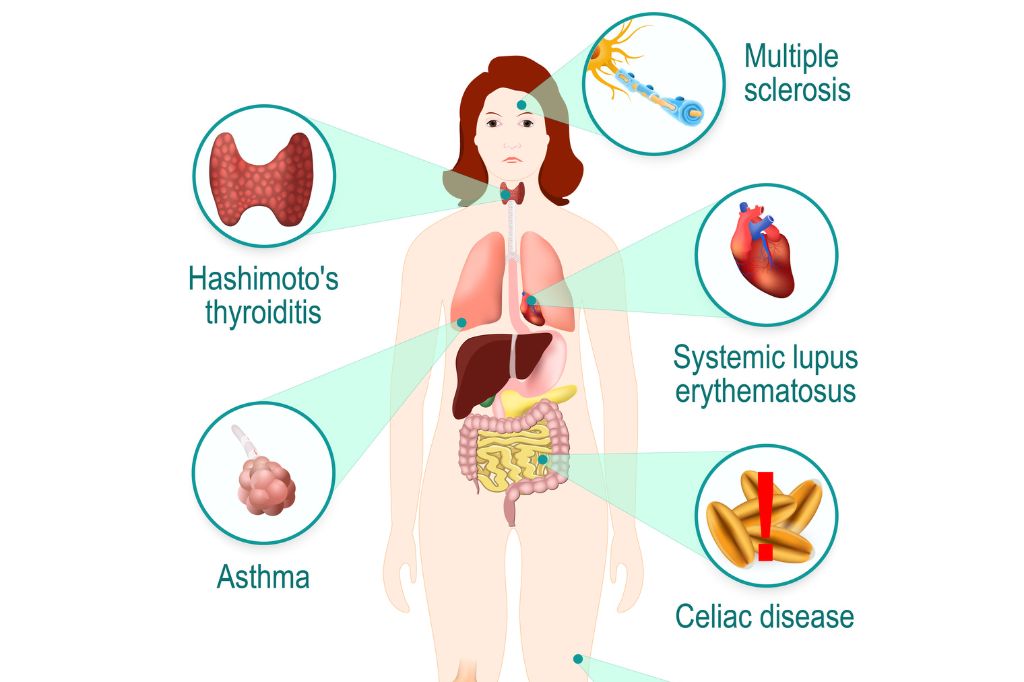Early Signs and Symptoms of Multiple Sclerosis
- Early signs and symptoms of multiple sclerosis (MS) can include fatigue, depression, problems with balance and coordination, numbness or tingling in the extremities, and weakness.
- Many of these symptoms are also seen in other conditions, so it is important to see a doctor get a proper diagnosis.
What is multiple sclerosis?
Multiple sclerosis (MS) is a chronic, often disabling disease that attacks the central nervous system (CNS), which is made up of the brain, spinal cord, and optic nerves.
It can cause a wide range of symptoms, including muscle weakness, loss of coordination, numbness and tingling, vision problems, and problems with balance and bowel or bladder control.
MS is thought to be an autoimmune disease in which the body’s immune system mistakenly attacks healthy tissues in the CNS. (1)
Can MS start at any age?
Multiple sclerosis (MS) can start at any age, but most often, it starts between the ages of 20 and 40.
It is unusual for children to develop MS, and it is even rarer for people over the age of 55 to be diagnosed with the disease.
While it is possible for MS to occur in older adults, this is typically seen in individuals who have had a previous diagnosis of the disease.
MS is more common in women than in men, and Caucasians are more likely to develop the disease than people of other races.
What causes multiple sclerosis?
The causes of multiple sclerosis (MS) are still unknown.
It’s considered an autoimmune disease in which the body’s immune system attacks its own nervous system — the central nervous system, which includes the brain and spinal cord.
There are a number of theories about what causes MS, but no one knows for sure.
Researchers believe that a combination of genetic and environmental factors may play a role in its development. (2)
There is no cure for MS, but treatments are available to help manage symptoms and slow the progression of the disease.
Early diagnosis and treatment are important for preventing disability and maximizing quality of life.
Early signs and symptoms of multiple sclerosis
Early signs and symptoms of MS can be subtle and may go unnoticed for months or even years.
However, some people experience a more sudden onset of symptoms.
The most common early symptom of MS is fatigue.
This can be accompanied by muscle weakness, difficulty walking, numbness, tingling, depression, chronic pain, and problems with balance and coordination.
Some people also experience blurred vision, vertigo, and difficulty urinating.
Most people with MS eventually develop symptoms that include:
- Sexual dysfunction
- Muscle spasms
- Slurred speech
- Problems with chewing and swallowing
- Trouble thinking clearly and concentration
- Bladder or bowel problems
In its advanced stages, MS can cause paralysis and blindness.
Early diagnosis and treatment of MS are essential to slow the progression of the disease.
If you experience any of these symptoms, please see your doctor as soon as possible. (3)
How Is multiple sclerosis Diagnosed?
Multiple sclerosis (MS) is a complex disease that can be difficult to diagnose.
That’s because of its wide range of potential symptoms and the fact that they can mimic those of other diseases.
In addition, there is no one definitive test for MS.
Instead, doctors must rely on a combination of medical history, physical examination, and diagnostic tests to rule out other conditions and make a diagnosis.
The first step is usually to obtain a detailed medical history and conduct a physical examination.
This can help to identify symptoms and rule out other possible causes.
Next, doctors may order one or more diagnostic tests, such as MRI, optical coherence tomography (OCT), lumbar puncture, or evoked potentials.
These tests can help to confirm the diagnosis of MS and rule out other conditions.
With proper diagnosis and treatment, most people with MS can live long, healthy lives.
Is MS curable or treatable?
Currently, there is no cure for MS.
However, treatments are available that can help to manage the symptoms and slow the progression of the disease.
The most common type of treatment is disease-modifying therapy, which can reduce inflammation and slow the progression of nerve damage.
In some cases, corticosteroids may also be used to reduce inflammation.
There are also a number of symptom-management therapies that can help to relieve pain, fatigue, and other symptoms associated with MS.
These treatments can be very effective in managing the disease and improving the quality of life.
When to see a doctor
If you experience any of the following symptoms, it’s important to see a doctor for a full evaluation:
- Loss of vision in one or both eyes
- Numbness or tingling in the extremities
- Weakness in the arms or legs
- Unsteadiness when walking
- Extreme fatigue
These are just some of the potential symptoms of MS.
If you experience any of them, it’s important to see a doctor as soon as possible.
With early diagnosis and treatment, it’s possible to manage the condition and prevent further damage.




